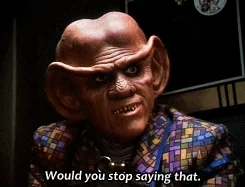Originally published at: Does free will violate the laws of physics? | Boing Boing
…
Stuff like this just reinforces my belief that the concept of “free will” is meaningless outside the very specific theological and philosophical context where it originates.
Yes, I agree with this. It’s more like a technical jargon term that has ended up mainstream but with a sufficiently different definition as a result to create confusion* (a bit like the word “monopoly” used in real life as opposed to economic theory.)
*internet trollers love terms like this because they know they can argue in bad faith without it sounding like that.
I guess I’ll have to watch the video to understand, because “free will” and “laws of physics” are always going to be two VERY different things in my lexicon. They don’t overlap or interact.
EDIT: Okay, watched and agree. Perfectly reasonable explanation.
Of course I’m not smart enough to enter this discussion, is that the laws of physics that did that?
If the laws of physics determine everything why aren’t we all making the same decisions?
See, I said I shouldn’t enter the discussion but physics gave me no other choice.
Now I have to look up the physics law on whether I should take down the Christmas lights today or not.
Okay, maybe that’s not a good example because physics doesn’t decide that, my wife does. I’ll ask her what I should do. Wait a minute, I already know her answer so maybe it is physics.
Can a philosophical question violate Betteridge’s law of headlines?
Which physics?
Is quantum physics deterministic or probabilistic?
Not just free-will, it’s all “illusion.” The absolute truth is just quarks and leptons and bosons, but your feeble human mind has to hallucinate an elaborate fantasy so that your meat sack will put enough food through its eating hole.
But for whatever reason we don’t freak out about how all kinds of other useful concepts we won’t be abandoning are illusions (color, temperature, emotions)? Because we’re especially fond of the idea that there’s an unmovable random-number generator at the core of our being spitting out impulses (though I really don’t see how that’s any more comforting than being simple electric meat).
Determinism vs probability does not give you free will, though - just different sets of outcomes you do not control.
For free will to exist you would have to be able to select from a group of possible outcomes, which is clearly ludicrous
This is the core of it. The reason this question is so hard to answer is because the question is malformed.
People like him are conflating a very blurry high level philosophical idea with a very low level of well-defined particle physics. As soon as you start “comparing” social science concepts to hard science concepts, the discussion is over. You’ve already drifted into pointlessness.
But it’s not deterministic in the way described. Or as the graphic suggests.
The universe isn’t utterly predictable.
I knew you would say that
I guess the universe and I have parted ways. Not for the first time.
If the mind isn’t real - is it a hallucination hallucinating. And what’s hallucinating it?
The universe is hallucinating itself ![]()
If a quark falls in the forest

I’d question how a particle accelerator was built in a forest without anyone noticing.
If it is not observed is it even really there?
Do waveforms collapse without observation?